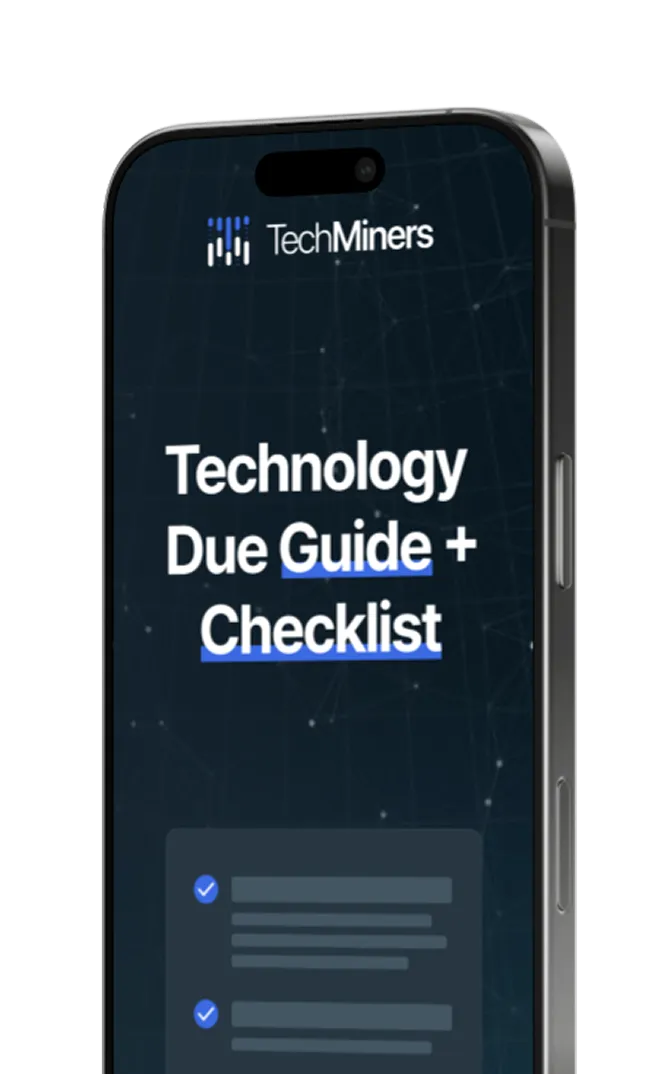You plan to perfom an Tech DD? We are happy to share insighs from our data-driven approach and strong experienced CTOs.
What is a Technology Due Diligence?
Fundamentally a Tech DD involves subject matter experts reviewing all relevant technological features of a targeted company. More often than not, this review uncovers a variety of technological insights that support stakeholders by permitting an informed, fact-driven decision.
A Technology Due Diligence, in conjunction with the classical due diligence; Legal, commercial and financial should cover all the topics and risks associated with technology companies.

How to choose a Technology Due Diligence provider?
A Tech Due Diligence can come in many shapes and sizes, and looks different from case to case.
Transactions by nature are dynamic and unique, meaning each accompanying Tech DD is largely context dependent. Simply put the larger the transaction scale, the deeper the Tech DD. The more established the company, the wider the scope of the Tech DD.
Beyond this, the intricacies of each transaction ultimately determine the Technology Due Diligence provider. For example a small seed round typically does not require a Deep Tech DD, in cases like these it's often appropriate to utilise the Buddy CTO method, where 1 or 2 sessions talking to the CTO and reviewing his choice of technology stack is sufficient. Whereas if a MVP or paying customers already exist, it’s recommended to take a more thorough approach, choosing a provider with expertise and benchmarking data.
It’s also important to consider the potential value a Tech DD can provide the target, as well the investor. For smaller startups, a Tech DD has the potential to hugely benefit the company, through constructive practices such as CTO sparring, roadmapping and the creation of action Items.
In M&A transactions a Tech DD provider should be involved in the risks and integration phase. Where it’s opportune to perform a preliminary review of points of interest, to reach an initial comprehension of viability. These points of interest include scanning open source licences, key developer retention, Tech Debt, and others.
If required an outside expert is brought in to give specialist insight into certain fields of interest.
Aside from context dependent cues, there are accepted practices seen in most Technology Due Diligences. A comprehensive report consisting of facts, action items, strengths and weaknesses of the target company is highly recommended. Pricing which varies by provider can be determined by either man-days or fixed price, however it’s always recommended to request an offer which outlines the scope, including outside involvement, deliverables, and timeline. This ensures transparency on both sides of the transaction.
A Tech DD should also act as a Chinese wall, guaranteeing confidentiality and discretion, whilst accessing key data points, such as source code, team, product roadmap, documentation and more. It is equally important that a provider remains unbiased and neutral throughout the entire process.
If you want to know the specifics of a Technology Due Diligence have a look at our













